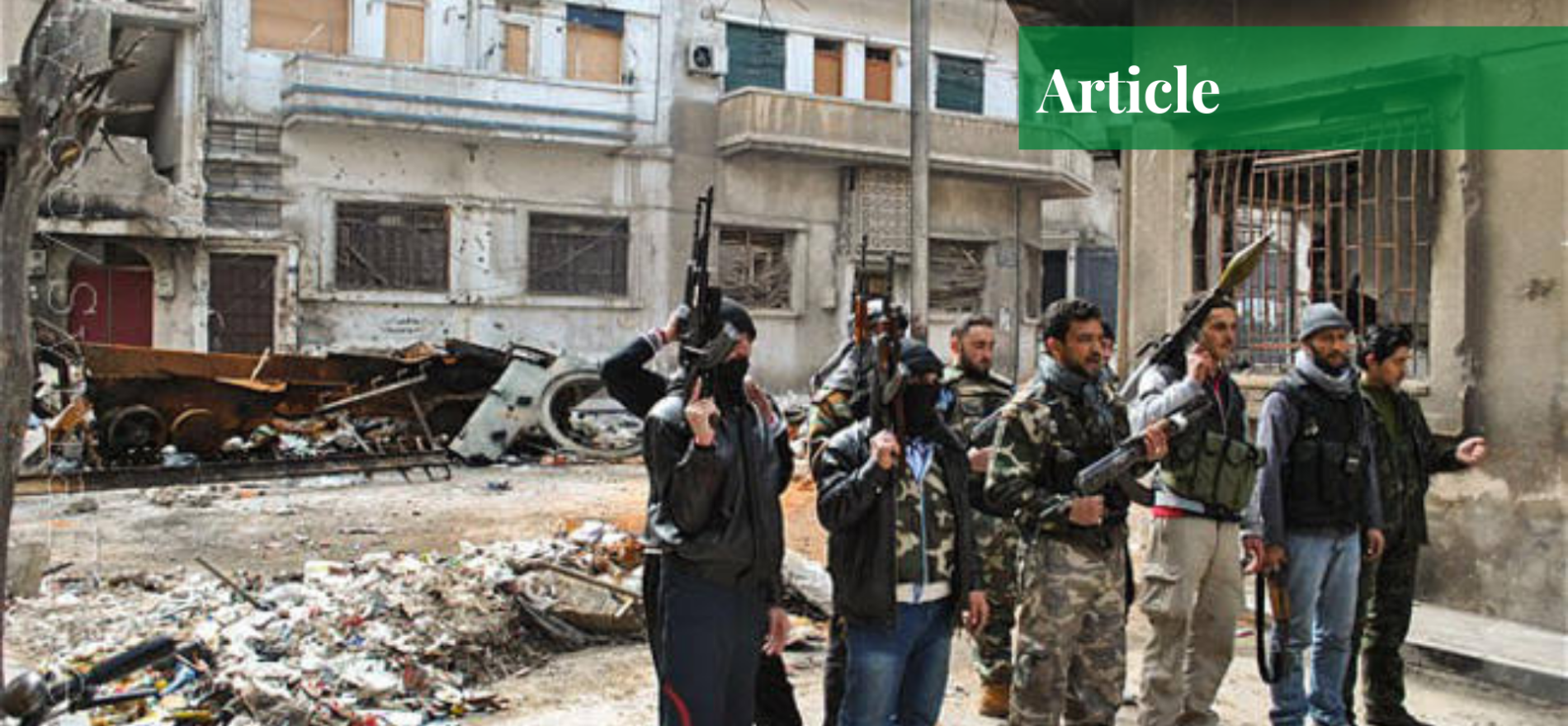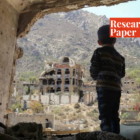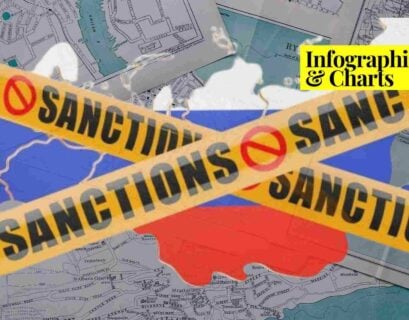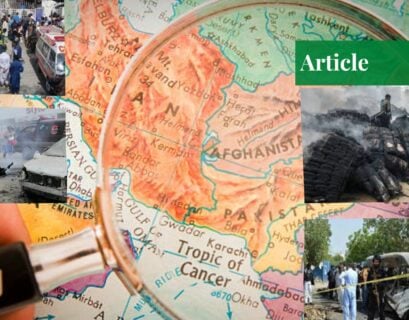Asadullah Khan Wazir is a freelance contributor and broadcast journalist.
Since the inception of international terrorism in the late 1960s, terrorism and terrorist activities have been a prominent component of contemporary warfare. With the fluid nature of international politics, the phenomenon of terrorism has been evolving. In the contemporary era, not only the non-state actors are involved in terrorist activities but the states also sponsor terrorism and violence. The use of violence by the Assad regime in the Syrian war is the perfect representation of this state-sponsored terrorism.
Almost every region of the world had a terrorism wave; Syria is no exception to it. The proxy wars are mirrored in the battlefield of Syria. Bashar al-Assad, the President of Syria, and his administration have no interest in countering terrorist activities and ensuring peace and an inclusive political structure.
Instead, the regime is continuously suppressing opponents, committing grave human rights violations, and carrying out state-sponsored terrorism, overtly and covertly. Even during the pandemic, the Assad regime did not abstain from killing civilians. The international community is seeking to establish peace in Syria, but the regime and the involvement of outsiders are the main obstacles in turning that dream into reality.
Defining Terrorism
The term “terrorism” denotes different lethal activities and tactics. There are three main tenets of terrorism on which the academicians have consensus—the use of violence, threat of use of violence, and spread or propagation of fear in a number of targeted people of any community. Terrorist acts are widely used to achieve certain political and other objectives. But these acts certainly create an atmosphere of menace and endangering the lives of civilians.
The UN, in 2005, came up with a comprehensive definition of terrorism. It defined terrorism as any act “intended to cause death or serious bodily harm to civilians or non-combatants with the purpose of intimidating a population or compelling a government or an international organization to do or abstain from doing any act.”
Syria and State-sponsored Terrorism
If one analyzes the acts and policies of the Syrian regime, the aforementioned tenets are clearly reflected in it. The regime has made regular use of violence, siege, and instigation of fear to achieve its political and strategic objectives. The Assad regime has not only targeted its opponents but also committed grave atrocities in the Syrian war.
It has widely used violence against civilians, instigated immense fear in the general population by using lethal chemical gases, and also supported and provided space to terrorist organizations to nourish. These acts were mainly focused on compelling Assad’s opponents to do what the regime wants them to do, or abstain from any acts which are in contrast to its policies. That is why Syria is designated as a perpetrator of state-sponsored terrorism by the US Department of State.
Primarily, Bashar al-Assad’s regime has two objectives to achieve through these terrorizing acts. Firstly, it wants to compel the population not to support the rebel groups; secondly, it seeks to prevent civilians from offering an alternative regime. To hold the strings of power, the Syrian government, since the middle of the 2000s, is continuously committing human rights violations, violating international law, and conducting state-sponsored terrorism.
Particularly after the Arab Spring in 2011, the use of violence intensified by Assad’s regime to save his government. The Syrian army fired at armed protestors in Derra, Damascus, Hama, and Homs. The regime carried out mass arrests, indiscriminately killed men and children, raped women, and displaced more than 10 million people.
Human Rights Violations and the Use of Weapons of Mass Destruction (WMDs)
Reuter estimates that more than 4 million have been killed in the Syrian war. Out of these 4 million, more than 83,500 civilians have been killed by Bashar al-Assad’s regime and its allies. The Crisis Cell was established by the government to crush the dissidents and peaceful demonstrations. Similarly, the regime did not even abstain from using chemical weapons against its own populations to suppress their voices and compel them not to support anti-government groups.
The chemical weapon, sarin gas, killed more than one thousand people in 2013. Within the first three hours of the attack on 21st August 2013, three hospitals in Damascus received 3,600 patients displaying symptoms of nerve gas exposure. This forced the world powers to dismantle the chemical arsenals of Syria.
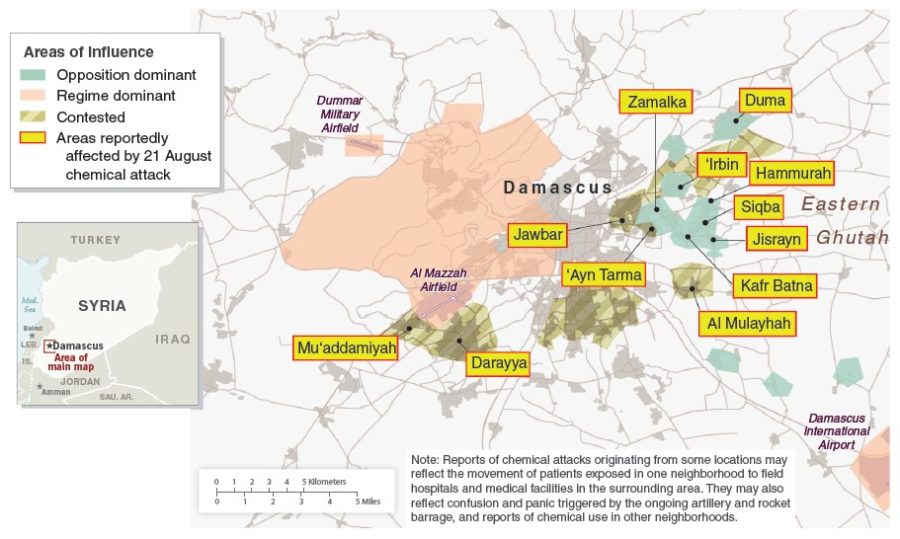
Despite the world powers’ pressure, the Assad regime has been continuously involved in brutal activities and human rights violations. In 2017, it again used a chemical weapon that killed dozens of people and harmed many. The regime and its ally—Russia—carry out offensive operations by using intensive aerial and artillery bombardment. These operations not only raze entire towns and communities but also target and destroy commerce, bakeries, hospitals, and educational institutions.
The atrocities can be gauged from the fact that during the pandemic, in 2020, the Syrian government killed more than 40 civilians (including six children), arrested 156 people, and attacked four civilians facilities including two schools. Besides these acts, the Assad regime also paved the way for terrorist organizations to nourish in Syria. It did not even hesitate to support terrorist organizations in other states, like Lebanon, etc. These acts show how lethal the regime is and how openly it is supporting state-sponsored terrorism in the Syrian war.
International Organizations’ Findings
The international organizations intermittently talk about the grave human rights abuses committed by the Assad regime in the Syrian war. In a research published by the Human Rights Watch, it is categorically stated that the nature and scale of abuses committed in Syria were not systematic but implemented as a part of the state policy. This report also asserts that the security forces opened fire on civilians directly without giving advance warning or making any effort to disperse the protesters by non-lethal means.
Similarly, the reports by the United Nations Human Rights Council (UNHRC) explain that the Syrian government continued to perpetuate mass killings, attack civilians, and destroy civilian facilities. In addition to it, the regime committed forceful disappearance, rape, torture, recruited and used children in hostilities, and supported terrorist organizations.
Recommendations
The world community needs to establish a comprehensive mechanism to stop Bashar al-Assad and his administration from continuing their brutal activities and human rights violations. Firstly, the international community needs to expand and increase its engagement and focus on Syria, as the disengagement has given the regime a clear road to continue its lethal activities.
Secondly, the world powers must come up with a joint conclusive mechanism to pressurize the states who support the Syrian regime’s brutal policies. Thirdly, a counter-narrative must be propagated in Syria so that the people of the state cannot get trapped in Bashar al Assad’s settled discourses. Lastly, the world powers and international organizations must engage the Syrian government and other stakeholders to negotiate a peace process and to achieve a peace deal.
If you want to submit your articles and/or research papers, please check the Submissions page.
The views and opinions expressed in this article/paper are the author’s own and do not necessarily reflect the editorial position of Paradigm Shift.
